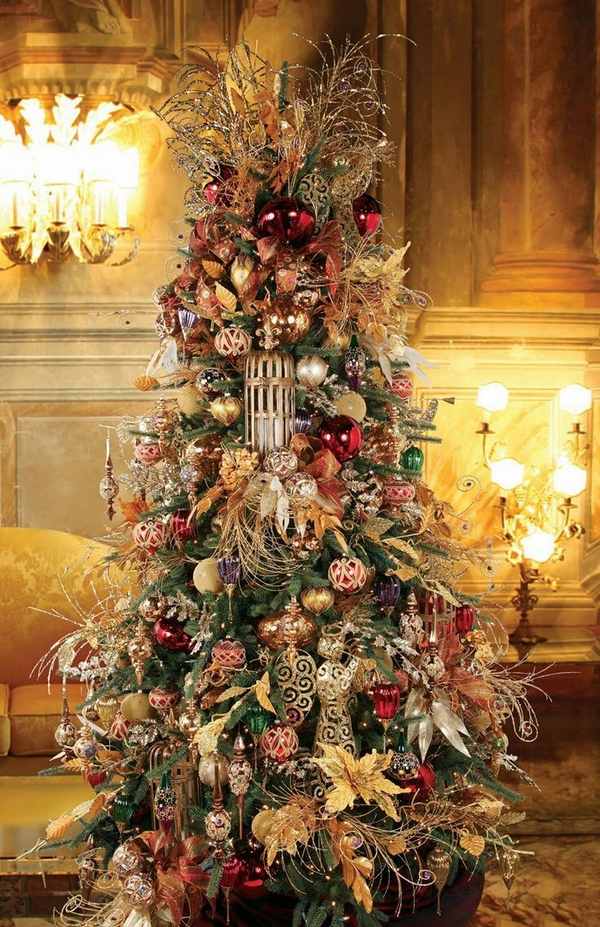The Tradition Behind Christmas Tree Decorations Explained

As winter approaches and the festive season draws near, homes around the world begin to transform with the radiant glow of Christmas trees. The tradition of decorating these evergreen trees, often seen as the centerpiece of holiday celebrations, is steeped in history and symbolism. From the sparkles of tinsel to the twinkling lights, every ornament hung on a Christmas tree carries with it a story, a cultural significance, or simply the warm memories of holiday cheer. In this blog post, we will explore the origins, evolution, and significance of Christmas tree decorations, unraveling the traditions behind this universally beloved holiday custom.
Historical Roots of the Christmas Tree Tradition

The practice of decorating evergreen trees dates back centuries and spans multiple cultures, each adding its unique touch to the tradition:
- Ancient Rome: Before the widespread adoption of Christianity, Romans decorated their homes with evergreens during Saturnalia, a festival honoring Saturn, the god of agriculture. The evergreens symbolized the continuity of life during the dark winter months.
- Pre-Christian Pagan Traditions: Many ancient cultures, including the Druids, Celts, and Vikings, venerated trees, especially evergreens, for their ability to remain lush and green despite winter’s grip. Trees like the Yew and Oak were revered, and this reverence transitioned into decorating them during winter solstice festivals.

The Evolution of Christmas Tree Decorations

From humble beginnings with natural adornments, Christmas tree decorations have evolved significantly over time:
- 15th-16th Century Germany: The modern tradition of the Christmas tree is often traced back to 16th-century Germany where Martin Luther, the Protestant reformer, is credited with first bringing the tradition to prominence. It was in this period that trees were first brought indoors and adorned with candles, apples, and nuts.
- 18th Century: In the early 1700s, German immigrants brought the tradition to America, leading to its widespread adoption. Trees were decorated with fruits, nuts, homemade cookies, and paper decorations.
- 19th Century: The 1840s marked a pivotal moment with Queen Victoria’s illustrated magazine, where she was depicted standing with her family around a decorated Christmas tree, significantly popularizing the custom in England and the British colonies. Ornamental baubles, intricate handmade ornaments, and later, mass-produced glass baubles, became common.
🌟 Note: The first known use of candles on trees led to many fires, prompting the invention of safer lighting alternatives like the now ubiquitous Christmas lights.
Symbolism of Christmas Tree Decorations

Each decoration holds symbolic meaning:
- Stars and Angels: Often placed at the top of the tree, they represent the Star of Bethlehem, guiding the Wise Men to Jesus, or the angels announcing his birth.
- Lights: Initially candles, now electric lights, symbolize Jesus as the ‘Light of the World’ and bring the warmth of light to the darkest time of the year.
- Baubles and Ornaments: These decorations symbolize the starry sky, the apples in the Garden of Eden, or simply the festivities of the season.
- Tinsel and Garland: Represent the festoons of greenery, evergreen boughs, or chains symbolizing the chains cast off at Christmas, freedom from the bonds of sin, or simply to add extra sparkle to the tree.
| Decoration | Symbolism |
|---|---|
| Stars/Angels | Birth of Jesus, Guiding Star |
| Christmas Lights | Light of the World, Warmth, and Celebration |
| Garland | Continuity, Festivities, Chains Cast Off |

Modern Trends in Christmas Decorations

While many hold fast to traditional decorations, modern trends also influence how people adorn their trees:
- Themed Trees: From color-coordinated decorations to themed trees like ‘The Nightmare Before Christmas’ or ‘Disney’, themed decorations have become popular, allowing for personal expression.
- Personalized Ornaments: Custom ornaments with family photos, names, or significant dates personalize the holiday experience.
- Eco-Friendly Decorations: With environmental concerns rising, more people opt for sustainable decorations like biodegradable garlands, upcycled ornaments, or natural items like pine cones and dried fruits.
- Technology: Christmas lights can now sync with music, trees can rotate, or even be decorated with holographic ornaments for a futuristic look.

The holiday season is a time of joy, reflection, and celebration, where the act of decorating a Christmas tree brings families and communities together. From its ancient roots to the modern expressions of this tradition, the Christmas tree stands as a symbol of life, hope, and festivity. Whether one is adorning a tree with traditional handmade ornaments passed down through generations or embracing the latest technological trends in tree decorations, the tree remains a unifying symbol across cultures and centuries. It's not just about the decorations themselves but the shared memories and the continuity of traditions that these evergreen harbingers of Christmas joy represent.
Why do we put a star or an angel on the top of the Christmas tree?

+
The star represents the Star of Bethlehem that guided the Wise Men to Jesus, while the angel symbolizes the heavenly announcement of Christ’s birth.
What is the environmental impact of Christmas decorations?

+
Traditional decorations often involve plastic and non-recyclable materials, but eco-friendly alternatives like reusable decorations, biodegradable materials, and energy-efficient LED lights are becoming more common to reduce environmental impact.
How has the meaning of Christmas tree decorations evolved?

+
Originally rooted in religious and pagan symbolism, Christmas tree decorations have evolved to include personal, cultural, and festive expressions, with themes and personal memories becoming as important as traditional symbols.



